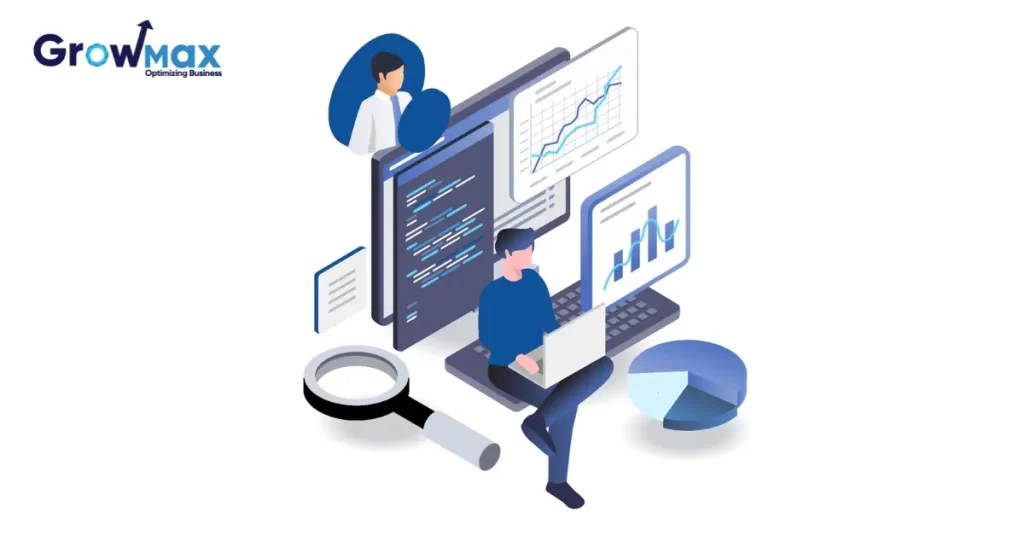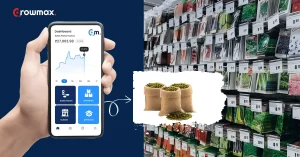Over the past few decades, data has brought a revolution in almost every industry imaginable. The disruption continues, and it has now reached the Retail Industry.
Despite being offline for a long time, the retail business can no longer resist this impact. The pandemic has forced its players to leverage data to survive and compete in the market.
The players across the world are now using new technologies to capture more data and leverage it to get on the top. Be it using CRMs, ERPs, or HR management software; no one wants to let data escape their hands.
One such technology in retail is Retail Intelligence — A technology that retail enterprises use to harness the power of data.
This article will explore the concept of retail intelligence for the FMCG and CPG industries. It will dive into its concepts, see how it works, and reveal its importance.
What is Retail Intelligence anyway?
Retail intelligence is an umbrella word for tools, techniques, and processes used by FMCG and CPG brands to gather and process data from their markets. Gathering and processing data allows them to create a data-driven work culture.
Decision-makers and leaders in such cultures decide based on real-time data and facts.
Retail Intelligence Systems gather operational and retail data from the distribution channels. After gathering the data, they analyze it, make predictive models, and generate meaningful insights.
It creates a pool of valuable data that brands harness to scale up their businesses.
How does it work?
To understand Retail Intelligence, let’s dissect it into parts and understand them individually. The following points divide the system into steps and explain them separately:
Process Digitization
A Retail Intelligence Platform digitizes the entire distribution. It changes the way distributors record and store data.
It provides automated data collection and warehousing solutions.
Field teams can record sales and their data directly from their mobile phones. They ease the capturing process, enhance timeliness, and maintain data accuracy.
Data Centralization
Once it collects the data, the system immediately transfers them into a cloud-based data warehouse. These warehouses create a pool of market data that brands can use for their benefit.
Cloud-based data warehouses offer the following features:
- Speed and Performance
- Data security
- Real-Time updates everywhere
- Ease to back up and recover
- Integration support
Insight Generation
After centralizing the data in the cloud, it processes them with its advanced algorithms and AI capabilities. It does that to generate valuable market insights and forecasts. Brands use these insights and forecasts to make day-to-day decisions and form strategies.
The exactness of these insights depends on the quality of the data stored in the first step.
Visualization
The insights are not always straightforward. They may be complex, diverse, or overwhelmingly numerical. It may overwhelm the decision-makers, as human brains cannot comprehend complex data quickly.
A Retail Intelligence Platform presents them on graphs, charts, and diagrams to make things easier. It allows the decision-makers to comprehend these insights and see the bigger picture.
Benefits Of a Good Retail Intelligence Platform
The 21st-century marketplaces are interconnected and dynamic. They need data to understand their markets and make effective decisions. Retail intelligence Platforms make it possible.
There are many benefits of automating commercial operations and using retail intelligence. Some of the significant ones are:
1. Accurate, Actionable, and Useful data
Not every insight is valuable. An insight must have three hallmarks of quality to be of any use. The first hallmark is accuracy — the data must be recorded, sorted, and managed accurately.
The second hallmark is usefulness — the insight must help the business grow. Analyzing variables outside of the control and focus of a brand is a waste of time for the business.
Thirdly, the insight must be actionable. It must come with decision and action possibilities. Retail Intelligence empowers the FMCG brands with accurate, helpful, and actionable insights.
2. Workforce Empowerment
A Retail Intelligence Platform empowers the workforce to understand the marketplace better. The understanding helps the workforce to concentrate their efforts on the important things.
Furthermore, many Retail Intelligence platforms like GrowmaxBI also include sales force automation tools.
They automate the repetitive tasks of the field force and empower them with extra time and tools to sell wider.
3. Digestible Data
The platform converts the mountain piles of data into easy-to-comprehend charts and graphs. It makes them easier, snappier, and digestible. Furthermore, it places them in intelligently organized dashboards.
These dashboards help the decision-makers digest complex data and make meaningful business decisions.
Retail Intelligence makes the data market assessment easier and less overwhelming.
4. Intelligent Alerts
The platform often works as a defense mechanism for the business. It detects difficulties in commercial operations and warns decision-makers in real-time.
It also alerts them when it identifies an opportunity in the distribution process.
It can identify things like a sudden fall or rise in sales orders in a specific region or a sudden increase in complaints in real-time. It allows the management to instantly respond to these problems and fix them before it’s too late.
5. Future Ready Business
Planning for the future has always been a guessing game for brands. They make their strategies based on certain assumptions and beliefs that are not backed by any data. These assumptions are often proven wrong, and they often end up wasting the time and resources of the company.
Retail intelligence platforms change this. They create a data-rich environment in a business where people plan and suggest based on data.
The system analyzes the past data with AI and ML-backed algorithms. It generates near-accurate forecasts for figures like sales, revenue, and inventory.
6. Wastage Reduction
Retail Intelligence allows brands to determine their product demands, match them with supply, and forecast future figures. It helps them plan their manufacturing process and primary purchases accordingly.
This reduces the excess of stock production. It elongates their shelf life. And it helps businesses save warehousing costs.
Emerging Possibilities with Retail Intelligence
Micro Customer Segmentation
Micro-Segmentation is a process where a brand divides its customer base into micro-segments. These segments are based on particular interests, tastes, and preferences.
So far, brands have had to distribute their products, keeping a broad range of customers. They couldn’t know about the specific customer choices. They couldn’t segment it based on locations, platforms, and age groups.
Retail intelligence allows brands can understand those preferences and create separate profiles and segments.
This segmentation helps them identify customer pain points, assign them to their segments, and cater to them accordingly.
For example, a food brand can conduct its analysis and find out the locations where customers prefer tomato-flavored chips.
Brands with micro-segmentation can craft effective marketing campaigns that address to the prospects.
Trade Promotion Management
FMCG brands have always struggled with Trade Promotion Schemes — they are offline, bureaucratic, and hard to measure. Retail Intelligence offers a solution to measure them.
With Retail Intelligence, brands can monitor their execution and check effectiveness. Additionally, brands can also access the impacts of their TPS in terms of sales increase and market reach.
Offline Advertising Impacts
Brands in the retail industry make up their strategies, put up billboards, and expect their sales to go off the roofs. However, retail advertising comes with its own set of limitations.
The biggest of them is the lack of accessibility. Brands cannot measure the impacts of their advertising endeavors.
Which territory responded well? Which one drove the highest ROI? What worked, and what didn’t? Questions like these are often left unanswered.
Retail intelligence answers these questions with real-time geographical data, impact measurement, and forecasts.
Real-Time Omni Channel Pricing
In the last few years, omnichannel retailing has emerged as the future of FMCG retailing. Brands cannot rely on a single sales platform for their survival.
They are continuously diversifying their sales and marketing touchpoints to keep up with the market.
Retail Intelligence helps them go omnichannel. Platforms like GrowmaxBI allow businesses to record and analyze data from multiple channels. The channels could be online, offline, or hybrid. It can record data from every point.
This omnichannel support makes Real-time Omnichannel Pricing and Hybrid Channel sales possible.
More Resources
We have a wide range of readable topics related to Retail, FMCG, and Business Intelligence. Check out our blog section to explore.
Or simply click here to read about Business Intelligence




